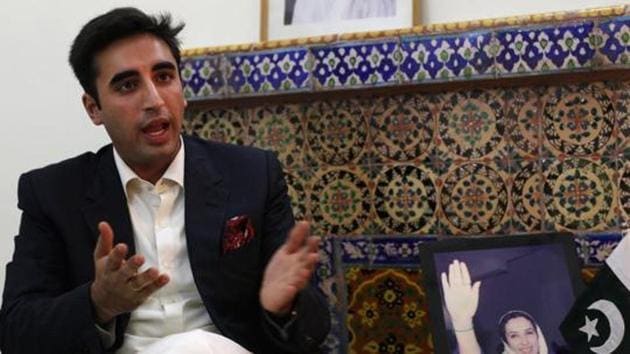Can Pakistan’s prodigal son become destiny’s child?
The PPP and its message no longer seem to resonate the way it once did, especially in Punjab
The youngest leader in the 2018 electoral fray heads the oldest of the three mainstream parties: the Pakistan People’s Party (PPP). This is his first election in which he is not just leading the campaign but also contesting more than one seat to the lower house of parliament.

Untried, young, heir to Pakistan’s first populist dynasty, Bilawal Bhutto Zardari or BBZ, as he is known in journalistic circles, should have generated more excitement in an election dominated by cynicism and allegations of interference all around. But, he hasn’t really done so. Partly, this is because the PPP is not seen as a serious contender in the fight for Punjab with 143 seats of the lower house. Chances are, the PPP will spend another five years confined to Sindh, sending few representatives to parliament from the other three provinces.
Partly, the PPP’s inability to recover much political capital over the past five years is due to Bilawal’s ambiguous position within the party. When Benazir Bhutto, his charismatic mother, was assassinated in 2007, her son was yet to begin his university education. The leadership mantle passed to her husband, Asif Ali Zardari, who is said to have many qualities but a grasp of popular politics has never been one of them. He managed to complete a rocky, five-year, tenure in Islamabad, but effectively wiped out the PPP in Punjab (and beyond). As a result, he felt the need for a popular face for the party — his son — but without ceding control.
So the last five years have seen BBZ launched and relaunched in jalsa after jalsa, then disappear from the country sparking frenzied gossip only to reappear for the saga to play out again. Each time, his Twitter account also went dormant, leading to speculation at times that he wasn’t too interested in politics.
And despite his resemblance to his mother and grandfather, it isn’t clear if he can recreate their magic. The PPP and its message no longer seems to resonate the way it once did, especially in Punjab, and coupled with the party’s poor governance record from 2008 to 2013, it seems unfair to put the entire burden of a legacy on a young man’s shoulders and expect him to revive a party within months — when the decline spans decades.
The story finds some parallels with the Congress in India and the Gandhi dynasty. Both parties produced a long running ruling dynasty, with a fair share of tragedies, and the passing of the party leadership to a reluctant (in India’s case) spouse and an unpopular one (in Pakistan’s case). And now both parties on either side of the border have once again pinned their hopes on the sons.
Arifa Noor is a journalist based in Pakistan
The views expressed are personal






